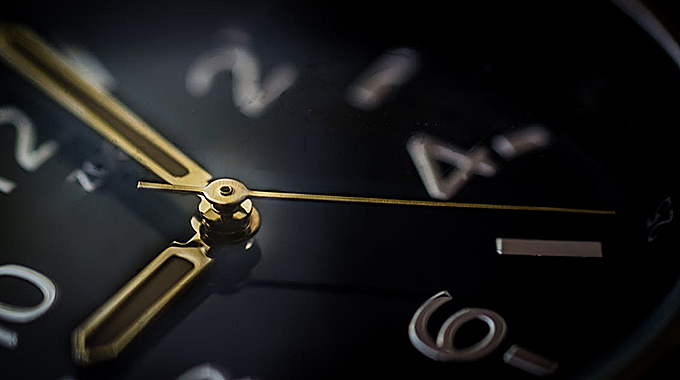De-constructing the knowledge of time

Christopher Farai Charamba The Reader
What is time? A simple answer that many might give is that it is a unit that measures the passing of one moment to the next.
The dictionary defines it as “the indefinite continued progress of existence and events in the past, present, and future regarded as a whole.”
There are other ways to explain the word time depending on the use of the word in a sentence. Time can mean a moment or it can be used to describe the length of a period.
In the book “The Order of Time”, Italian theoretical physicist Carlo Rovelli sets out to de-construct the concept of time and comes to some surprising yet interesting conclusions.
Rovelli whose life’s work is studying the nature of time, gives five meanings of the word which he says are distinct but related to each other.
“Time is the general phenomenon of the succession of events . . . Time indicates an interval in this succession . . . It’s duration … Time can also indicate a particular moment . . . Time indicates the variable that measures duration …”
According to Rovelli, people have misunderstood what time is.
“We conventionally think of time as something simple and fundamental that flows uniformly, independent of everything else from the past to the future, measured by clocks and watches,” he writes.
“In the course of time the events of the universe succeed each other in an orderly way, pasts, presents, futures. The past is fixed, the future open. And yet all of this has turned out to be false.”
The book is structured in three different parts. The first looks at what we understand about time presently, for example, no two times are exact or the fact that time slows down the faster you move. Rovelli looks at time as understood by philosophers such as Plato to theoretical physicists like Albert Einstein.
In the second section of the book, he then goes on to explain why everything we know about time is wrong. This is where the book gets particularly technical as Rovelli removes time from the equations of the universe and focuses on the importance of thermodynamics and entropy in understanding the universe.
According to Rovelli, there is no such thing as the flowing of time. There is no past or future, only the present. As the author puts it, “one after other the characteristics of time have turned out to be approximations, mistakes determined by our perspective”.
As a person with a pedestrian understanding of physics, some of the concepts did fly over my head but Rovelli does try, as far as possible, to make them digestible. He himself admits that while his book is illuminating, it is at the same time confusing.
The book’s third act looks at Rovelli’s attempt to reconstruct our understanding of time. How it is that human beings have come to know time as it is today and what the edge of the scientific understanding of time is.
There is definitely a poeticism to Rovelli’s work. His language is simple in some parts and complex in others.
To make is easier for the reader to understand he uses anecdotes and draws examples from literature.
To illustrate each definition of time in the opening chapters, he uses quotes from one of Shakespeare’s works. “Tomorrow, and tomorrow, and tomorrow. Creeps in this petty pace from day to day” a line from Macbeth is one such example used when referring to the interval in the succession of events.
In other parts of the book he draws from mathematicians, philosophers and scientists such as Copernicus, Anaximander, St Augustine and Newton, not only quoting their musings and studies but also talking about their lives and how these affected their work.
The book although not long in pages, is a long read as I had to repeatedly go over certain parts to try and grasp the concepts. Rovelli has, however, crafted a fascinating piece of work that enlightens the reader and makes interesting the field of theoretical physics and the study of time.
“Time is a complex structure of layers,” to quote Rovelli. “The mystery of time is ultimately about ourselves more than it is about the cosmos.”










Comments